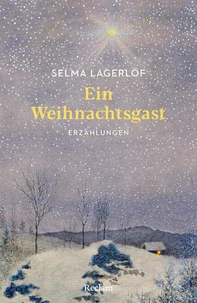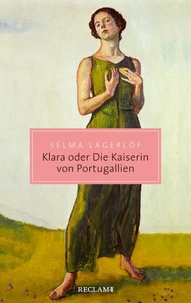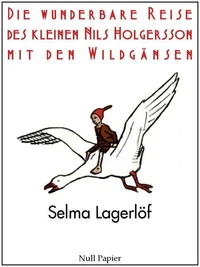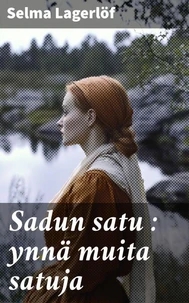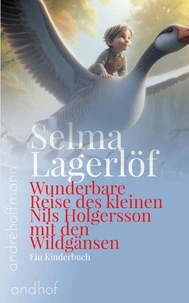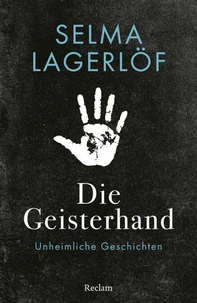Charlotte Löwensköld
Par : ,Formats :
Disponible dans votre compte client Decitre ou Furet du Nord dès validation de votre commande. Le format ePub est :
- Compatible avec une lecture sur My Vivlio (smartphone, tablette, ordinateur)
- Compatible avec une lecture sur liseuses Vivlio
- Pour les liseuses autres que Vivlio, vous devez utiliser le logiciel Adobe Digital Edition. Non compatible avec la lecture sur les liseuses Kindle, Remarkable et Sony
 , qui est-ce ?
, qui est-ce ?Notre partenaire de plateforme de lecture numérique où vous retrouverez l'ensemble de vos ebooks gratuitement
Pour en savoir plus sur nos ebooks, consultez notre aide en ligne ici
- Nombre de pages215
- FormatePub
- ISBN859-65--4700861-3
- EAN8596547008613
- Date de parution17/05/2022
- Protection num.Digital Watermarking
- Taille393 Ko
- Infos supplémentairesepub
- ÉditeurDIGICAT
Résumé
Selma Lagerlöf's "Charlotte Löwensköld" is a striking exploration of love, ambition, and the constraints of societal expectations in a late 19th-century Swedish context. Rich in allegorical significance, the narrative unfolds through its eponymous character, Charlotte, a woman torn between her aspirations and the traditional roles imposed upon her. Lagerlöf's lyrical prose combines realism with elements of mysticism, drawing readers into an introspective journey that reflects the dualities of human nature and the complexities of relationships.
The novel stands within the context of feminist literature, emphasizing a woman's struggle for identity in a patriarchal society while also resonating with broader themes of existential inquiry. Selma Lagerlöf, the first female writer to receive the Nobel Prize in Literature, was profoundly influenced by the cultural and historical landscapes of Sweden, as well as her own experiences as a teacher and a feminist advocate.
Her own life paralleled the struggles of her characters, as she navigated the challenges of a male-dominated literary world. This background imbues "Charlotte Löwensköld" with authenticity, as it encapsulates both her personal philosophies and the zeitgeist of her era. For readers interested in the intricate dance between heart and mind, "Charlotte Löwensköld" offers a compelling portrait of a woman's journey for self-fulfillment.
Lagerlöf's masterful storytelling invites contemplation and empathy, making this work an essential reading for those who appreciate both character-driven narratives and the exploration of social themes.
The novel stands within the context of feminist literature, emphasizing a woman's struggle for identity in a patriarchal society while also resonating with broader themes of existential inquiry. Selma Lagerlöf, the first female writer to receive the Nobel Prize in Literature, was profoundly influenced by the cultural and historical landscapes of Sweden, as well as her own experiences as a teacher and a feminist advocate.
Her own life paralleled the struggles of her characters, as she navigated the challenges of a male-dominated literary world. This background imbues "Charlotte Löwensköld" with authenticity, as it encapsulates both her personal philosophies and the zeitgeist of her era. For readers interested in the intricate dance between heart and mind, "Charlotte Löwensköld" offers a compelling portrait of a woman's journey for self-fulfillment.
Lagerlöf's masterful storytelling invites contemplation and empathy, making this work an essential reading for those who appreciate both character-driven narratives and the exploration of social themes.
Selma Lagerlöf's "Charlotte Löwensköld" is a striking exploration of love, ambition, and the constraints of societal expectations in a late 19th-century Swedish context. Rich in allegorical significance, the narrative unfolds through its eponymous character, Charlotte, a woman torn between her aspirations and the traditional roles imposed upon her. Lagerlöf's lyrical prose combines realism with elements of mysticism, drawing readers into an introspective journey that reflects the dualities of human nature and the complexities of relationships.
The novel stands within the context of feminist literature, emphasizing a woman's struggle for identity in a patriarchal society while also resonating with broader themes of existential inquiry. Selma Lagerlöf, the first female writer to receive the Nobel Prize in Literature, was profoundly influenced by the cultural and historical landscapes of Sweden, as well as her own experiences as a teacher and a feminist advocate.
Her own life paralleled the struggles of her characters, as she navigated the challenges of a male-dominated literary world. This background imbues "Charlotte Löwensköld" with authenticity, as it encapsulates both her personal philosophies and the zeitgeist of her era. For readers interested in the intricate dance between heart and mind, "Charlotte Löwensköld" offers a compelling portrait of a woman's journey for self-fulfillment.
Lagerlöf's masterful storytelling invites contemplation and empathy, making this work an essential reading for those who appreciate both character-driven narratives and the exploration of social themes.
The novel stands within the context of feminist literature, emphasizing a woman's struggle for identity in a patriarchal society while also resonating with broader themes of existential inquiry. Selma Lagerlöf, the first female writer to receive the Nobel Prize in Literature, was profoundly influenced by the cultural and historical landscapes of Sweden, as well as her own experiences as a teacher and a feminist advocate.
Her own life paralleled the struggles of her characters, as she navigated the challenges of a male-dominated literary world. This background imbues "Charlotte Löwensköld" with authenticity, as it encapsulates both her personal philosophies and the zeitgeist of her era. For readers interested in the intricate dance between heart and mind, "Charlotte Löwensköld" offers a compelling portrait of a woman's journey for self-fulfillment.
Lagerlöf's masterful storytelling invites contemplation and empathy, making this work an essential reading for those who appreciate both character-driven narratives and the exploration of social themes.


